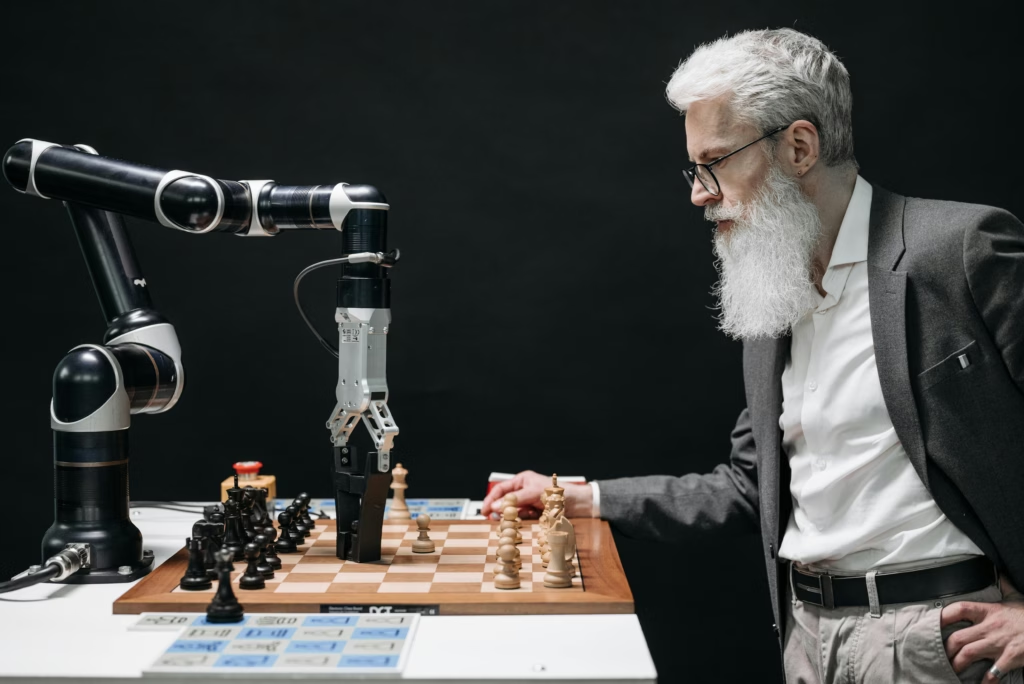Forget one-size-fits-all classrooms. Artificial intelligence is revolutionizing education with personalized tutoring and mentoring systems that cater to each student’s unique needs.
Imagine a world where every student has access to their own personal tutor, available 24/7, who understands their strengths, weaknesses, and learning style. This isn’t science fiction; it’s the reality ushered in by AI-driven tutoring and mentoring systems.
These sophisticated platforms leverage the power of artificial intelligence to provide customized learning experiences, adapting to each student’s pace and offering tailored guidance and support. From personalized lesson plans and targeted feedback to motivational encouragement and real-time assistance, AI tutors are transforming the educational landscape.
How AI Tutors Work Their Magic:
- Personalized Learning Paths: AI algorithms analyze student performance, identifying knowledge gaps and areas for improvement. This data is used to create individualized learning paths, ensuring students focus on the concepts they need most.
- Adaptive Feedback and Guidance: Forget generic feedback. AI tutors provide specific and constructive guidance, pinpointing errors and suggesting strategies for improvement. This personalized feedback helps students understand their mistakes and learn from them effectively.
- 24/7 Availability and Support: Stuck on a problem at midnight? No problem! AI tutors are available around the clock, offering on-demand support whenever students need it. This accessibility ensures that learning can happen anytime, anywhere.
- Gamified Learning and Motivation: AI tutors often incorporate game-like elements and challenges to keep students engaged and motivated. This gamified approach transforms learning from a chore into an exciting adventure.
- Identifying and Addressing Learning Challenges: AI systems can detect signs of learning difficulties, such as dyslexia or ADHD, allowing for early intervention and support. This can be crucial in helping students overcome challenges and reach their full potential.
Beyond the Classroom: AI’s Expanding Role in Education:
The impact of AI extends beyond personalized tutoring. Here are some other ways AI is revolutionizing education:
- Automated Essay Grading: AI algorithms can assess essays and written assignments, providing feedback on grammar, structure, and content. This frees up teachers’ time to focus on individual student needs.
- Chatbots for Student Support: AI-powered chatbots can answer common student questions, provide information about courses and programs, and even offer administrative support.
- Early Intervention Systems: AI can analyze student data to identify those at risk of falling behind, allowing educators to intervene early and provide necessary support.
- Creating Inclusive Learning Environments: AI can help create more inclusive learning environments by providing personalized support for students with disabilities and those from diverse backgrounds.
The Future of Learning: A Collaborative Approach
While AI tutors offer incredible potential, it’s important to remember that they are tools to enhance, not replace, human interaction. The future of education lies in a collaborative approach, where AI and educators work together to create the most effective learning experiences.
Teachers will continue to play a vital role in fostering creativity, critical thinking, and social-emotional development. AI will empower them with valuable insights and tools, allowing them to personalize instruction and focus on individual student needs.
Embracing the AI Revolution in Education
The rise of AI in education presents exciting opportunities for personalized learning, increased efficiency, and improved outcomes for all students. By embracing these advancements and fostering a collaborative approach, we can unlock the full potential of AI to transform education and prepare students for the challenges of the 21st century.



